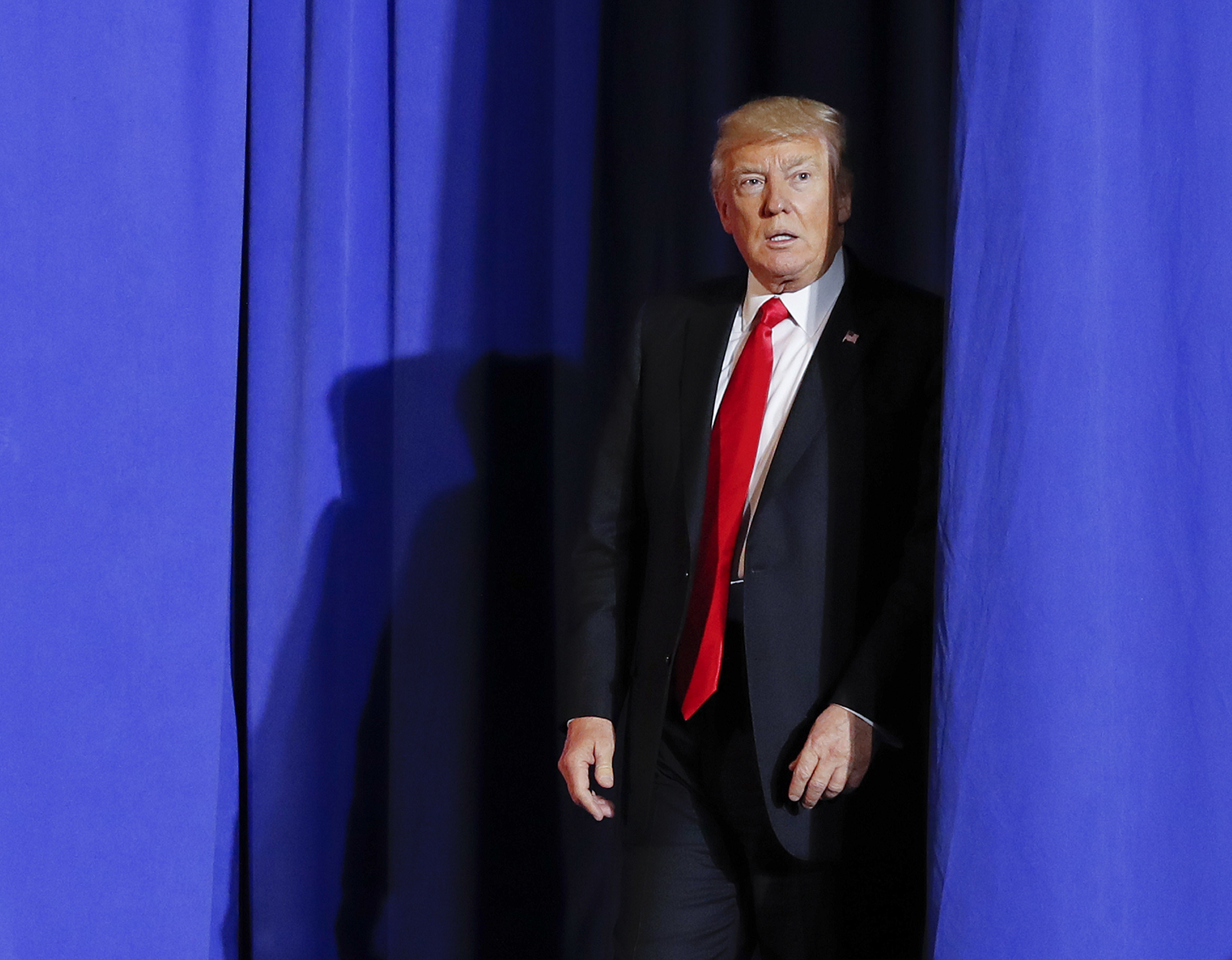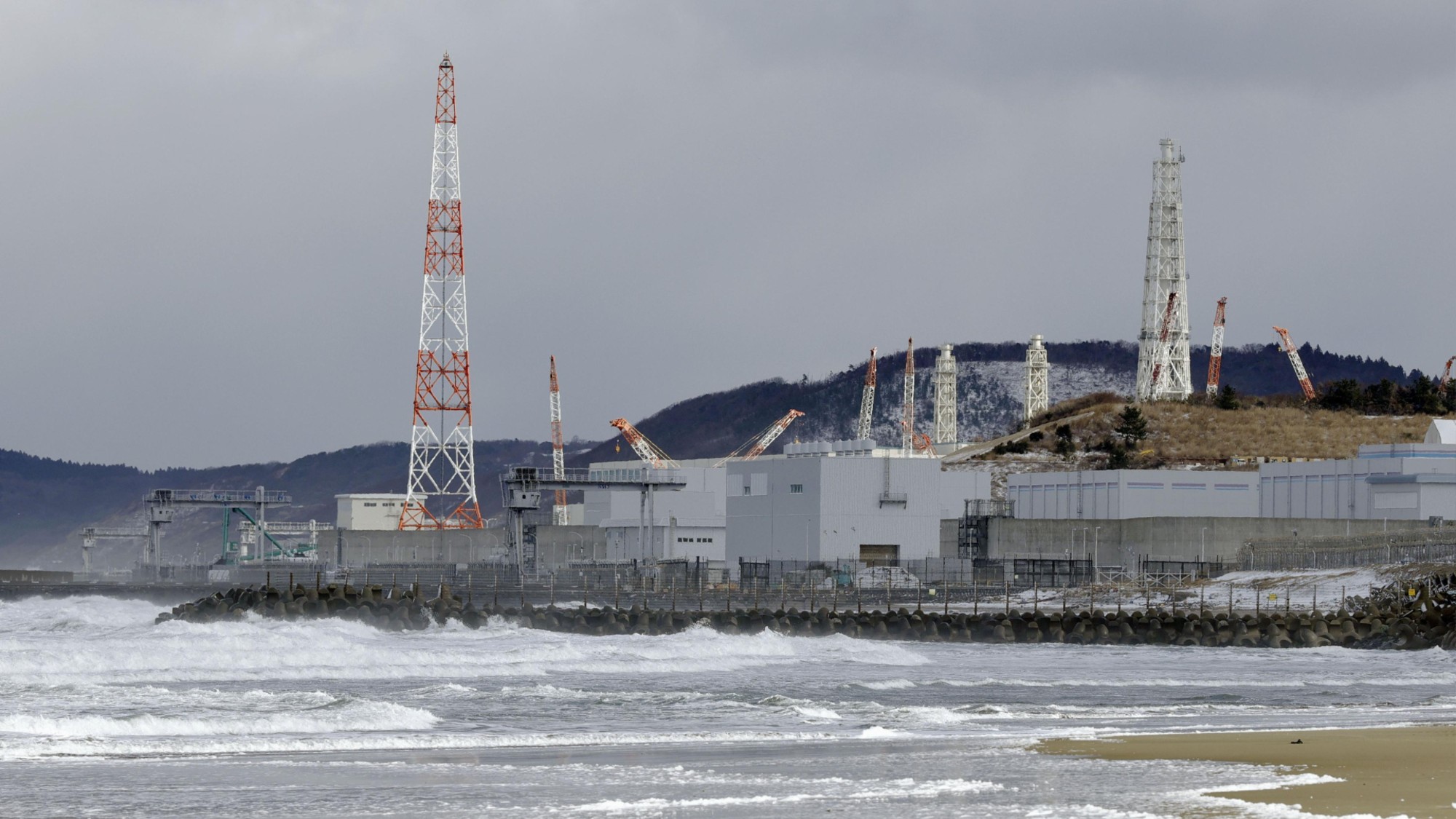How conservative judges unintentionally sabotaged President Trump's immigration crackdown
President Trump simply does not have free rein to do as he pleases to sanctuary cities

Liberals are understandably upset about President Trump's executive orders on immigration. But it may be conservatives who unwittingly throw the biggest wrench in one of the central pieces of these orders.
On Wednesday, the president signed an executive order to explore options to withhold federal funding from sanctuary cities — which harbor illegal immigrants who might otherwise be deported by the feds — if they resist complying fully with his impending crackdown on undocumented immigrants. Liberal leaders immediately vowed to defy President Trump.
New York City Mayor Bill de Blasio thundered that the order "won't change how we enforce the law in New York City." Likewise, Chicago Mayor Rahm Emanuel vowed that his city would remain a sanctuary. "There is no stranger among us. We welcome people, whether you're from Poland or Pakistan, whether you're from Ireland or India or Israel, and whether you're from Mexico or Moldova, where my grandfather came from, you are welcome in Chicago as you pursue the American Dream," Emanuel said.
The Week
Escape your echo chamber. Get the facts behind the news, plus analysis from multiple perspectives.

Sign up for The Week's Free Newsletters
From our morning news briefing to a weekly Good News Newsletter, get the best of The Week delivered directly to your inbox.
From our morning news briefing to a weekly Good News Newsletter, get the best of The Week delivered directly to your inbox.
Amen to such noble sentiments!
But the fact of the matter is that when nobility gets expensive, you get less of it. That's why undocumented workers are lucky that they don't have to count on liberal goodwill alone. They also have the law on their side — thanks to all the conservative Supreme Court justices who rejected ObamaCare's efforts to coerce states into embracing Medicaid expansion by stripping them of federal dollars.
Let's back up for a moment.
The sanctuary city movement began in 2008, when a few dozen localities started resisting President George W. Bush's controversial SECURE Communities program. Bush's program required local authorities to share the fingerprints of all arrestees — legal and illegal, citizens and foreigners — for a run through a federal database to make sure they were in the county legally. Anyone who couldn't get Immigration and Customs Enforcement (ICE) clearance was supposed to be detained by local authorities for up to two days till federal agents whisked them away for deportation, regardless of how trivial the original crime or whether they were even found guilty.
A free daily email with the biggest news stories of the day – and the best features from TheWeek.com
The sanctuary city movement eventually grew to include about 550 cities under President Barack Obama, who vastly expanded this program and deported two million undocumented workers, before finally winding it down in 2012. Now President Trump has vowed to restore it.
Trump makes it sound like this is meant to ferret out hardened criminals that sanctuary cities are harboring just to poke Uncle Sam in the eye. That's why he painstakingly named all the Americans killed by undocumented immigrants when announcing his crackdown. But that is patently absurd: There is no locality that shelters individual immigrants convicted of violent offenses. The issue only concerns mass deportation of foreigners who have committed minor offenses.
The SECURE Communities program forced too many local law enforcement resources to be diverted to low-level undocumented offenders instead of being focused on truly violent criminals. This made American communities less, not more, safe. It also sowed fear and resentment toward local police among targeted Latino communities, many of which just stopped reporting crimes.
The wait-for-ICE detentions were also almost certainly unconstitutional. They required holding people without a warrant beyond the time required by the original crime. (For example, someone booked for unpaid parking tickets could end up being detained for days and then deported.) For all these reasons, many cities developed internal policies of non-cooperation. Some states, like California, even passed laws barring local cooperation.
But all these communities would have to rethink their brave stance if Trump could make good on his threat of stripping them of federal money.
It's a good thing, then, that the president can't do that — thanks in large part to the conservative justices in the National Federation of Independent Business v. Sebelius – aka the ObamaCare ruling.
Joined by two liberals, all five conservative justices basically declared null and void an ObamaCare provision that would have stripped states that refused to expand Medicaid of all their Medicaid funding — not just the money tied to the expansion pushed by ObamaCare. The justices agreed that this was "coercion," and that Uncle Sam does not have limitless authority to withhold "non-germane" funds that don't have anything to do with the policy in question.
This ruling is a huge legal problem for President Trump's attempts to withhold non-immigration-related federal funding from sanctuary cities. Sure, he can go after germane funds. That means Department of Justice and DHS grants that are tied to immigration enforcement are fair game. But little beyond that may be in play, as Bill Ong Hing, a law professor at the University of San Francisco and the founder of the Immigrant Legal Resource Center, told Politico. All in all, the DOJ funds at risk add up to just $600 million nationally. Even if Trump could find more funds to scrap, it would be tantamount to a drop in the bucket considering that San Francisco alone receives $1 billion annually from the federal government.
Most sanctuary cities will likely be able to withstand this kind of a hit. And as a result, their huddled masses might be saved from Trump's tentacles.
But there's another big cost that will hamstring this sanctuary city crackdown: If he can't command local cooperation by threatening to cut funds, then President Trump also can't de facto deputize local law enforcement agents. So he will have to cough up large sums of federal money to triple the size of the federal deportation force that would be required to eject millions of additional people.
And that will also mean bad optics, because without cooperative local authorities, President Trump will not be able to order ICE agents to whisk away all of these folks quietly in the dead of the night, shielded from media cameras. Instead, he'll have to start raiding schools, neighborhoods, and workplaces, which will make for terrible publicity.
Whether Trump will go that far remains to be seen. But thanks primarily to the conservative justices on the Supreme Court, it'll be very hard for him to do so. And that gives undocumented workers far more of a chance than if they had to depend only on the good intentions of local liberal politicians.
The irony is that these immigrants would be in much bigger trouble if Justice Sonia Sotomayor, along with her liberal colleague Ruth Bader Ginsburg, had prevailed in the ObamaCare ruling, as many liberals had hoped at the time. They were completely on board with ObamaCare's efforts to use federal funds to strong-arm states.
So what's the lesson? That standing up for bedrock checks and balances is a far better protector of vulnerable minorities than do-gooding liberal politics.
Shikha Dalmia is a visiting fellow at the Mercatus Center at George Mason University studying the rise of populist authoritarianism. She is a Bloomberg View contributor and a columnist at the Washington Examiner, and she also writes regularly for The New York Times, USA Today, The Wall Street Journal, and numerous other publications. She considers herself to be a progressive libertarian and an agnostic with Buddhist longings and a Sufi soul.
-
 Washington grapples with ICE’s growing footprint — and future
Washington grapples with ICE’s growing footprint — and futureTALKING POINTS The deadly provocations of federal officers in Minnesota have put ICE back in the national spotlight
-
 ‘One day fentanyl will come back — and there will be little anyone can do’
‘One day fentanyl will come back — and there will be little anyone can do’Instant Opinion Opinion, comment and editorials of the day
-
 15 years after Fukushima, is Japan right to restart its reactors?
15 years after Fukushima, is Japan right to restart its reactors?Today’s Big Question Balancing safety fears against energy needs
-
 The billionaires’ wealth tax: a catastrophe for California?
The billionaires’ wealth tax: a catastrophe for California?Talking Point Peter Thiel and Larry Page preparing to change state residency
-
 Bari Weiss’ ‘60 Minutes’ scandal is about more than one report
Bari Weiss’ ‘60 Minutes’ scandal is about more than one reportIN THE SPOTLIGHT By blocking an approved segment on a controversial prison holding US deportees in El Salvador, the editor-in-chief of CBS News has become the main story
-
 Has Zohran Mamdani shown the Democrats how to win again?
Has Zohran Mamdani shown the Democrats how to win again?Today’s Big Question New York City mayoral election touted as victory for left-wing populists but moderate centrist wins elsewhere present more complex path for Democratic Party
-
 Millions turn out for anti-Trump ‘No Kings’ rallies
Millions turn out for anti-Trump ‘No Kings’ ralliesSpeed Read An estimated 7 million people participated, 2 million more than at the first ‘No Kings’ protest in June
-
 Ghislaine Maxwell: angling for a Trump pardon
Ghislaine Maxwell: angling for a Trump pardonTalking Point Convicted sex trafficker's testimony could shed new light on president's links to Jeffrey Epstein
-
 The last words and final moments of 40 presidents
The last words and final moments of 40 presidentsThe Explainer Some are eloquent quotes worthy of the holders of the highest office in the nation, and others... aren't
-
 The JFK files: the truth at last?
The JFK files: the truth at last?In The Spotlight More than 64,000 previously classified documents relating the 1963 assassination of John F. Kennedy have been released by the Trump administration
-
 'Seriously, not literally': how should the world take Donald Trump?
'Seriously, not literally': how should the world take Donald Trump?Today's big question White House rhetoric and reality look likely to become increasingly blurred
